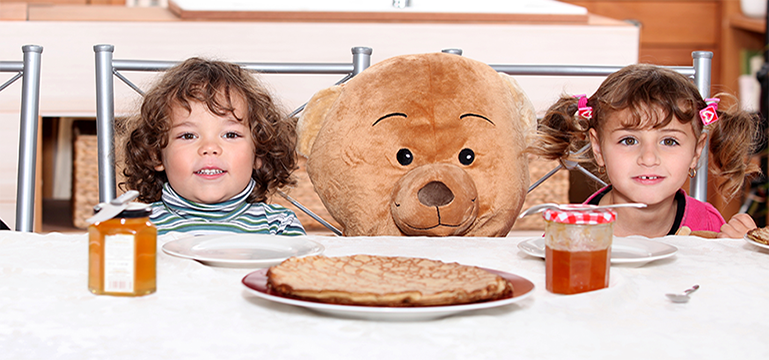Skills building at snack time

Quick links:
Information about the setting
Cylch Meithrin Ynyshir & Wattstown is registered to take up to 24 children. The setting provides sessional and full day care for children aged from two to four years. It provides funded early years education, Flying Start provision and the funded child care offer as well as providing places for fee-paying children.
Nearly all children come from homes where English is the main language spoken. The setting’s aim is to give children the best opportunities to reach their full potential in a high quality, nurturing and caring environment.
Context and background to the effective or innovative practice
The setting used to offer a traditional snack time routine that involved serving children as a whole group, using plastic cups and plates, and offering no choice of food or drink. From their observations, practitioners recognised that this routine had a negative effect on the children’s
wellbeing and behaviour, and did not promote their independence or allow them to make choices. They recognised that it was not appropriate to expect such young children to sit for prolonged periods at the snack table. They realised that very few children had experience of sitting together to share at the table informally to chat and share food and drink. This led the team to develop a ‘rolling snack’ where children could access refreshments independently throughout the session.
The setting registered for the Healthy and Sustainable Pre School Scheme. This developed practitioners’ understanding about the benefits of modelling healthy lifestyles. Acting on information from training, practitioners created a varied snack menu, purchased real crockery and glassware and began using real cutlery. This provided valuable opportunities for children to experience and use real, good quality resources and learn to look after them carefully.
The setting involved families by offering parent engagement sessions which provided a wealth of information about the advantages of healthy snacks and lifestyles. This has had a positive impact on the choices they provide at home. Many parents have participated in cooking sessions with their children at the setting.
Description of nature of strategy or activity
Children choose when to have their snack and serve themselves independently.
Practitioners model how to use the snack area carefully, so that children know what to do. They have high expectations of the children and, as a result, the children develop a wide variety of skills effectively.
- Children learn about the importance of personal hygiene. Most children understand the routine well and wash their hands independently before they take their snack.
- Nearly all children make confident choices when they select food, appropriate crockery and cutlery and then serve themselves.
- They learn to take turns, wait patiently and chat to their peers and to adults while they eat and drink.
- Most children become proficient in using tongs, spoons and knives whilst serving, scraping, pouring and spreading. This develops their fine motor physical skills well.
- Nearly all children learn to use knives and scissors carefully and safely for cutting, chopping and spreading.
- Practitioners encourage children to be adventurous and take risks to try new foods, from their own and from other cultures.
- Nearly all children learn to take responsibility for clearing up and recycling any food left over.
Once this routine was established, practitioners moved on to plant, grow and harvest herbs and vegetables with the children, which they cooked and used at snack time.
Practitioners have evaluated their work and identified next steps, to build on their good practice. They aim to:
- compost our recycled food waste, so the children understand the full cycle
- enable children to wash and dry their dishes to encourage further independence
What impact has this work had on provision and children’s standards?
Practitioners’ observations show that children’s behaviour, concentration, speaking and listening skills, personal and social skills, and physical skills have improved considerably. Many achieve above the expected outcomes for their age in personal and social development as a result of their experiences. Children enjoy their snack and use the area responsibly.
How have you shared your good practice?
Many practitioners from across the local authority have visited the setting to observe the snack time routine. Local authority officers recognise the provision at snack time as an example of good practice.